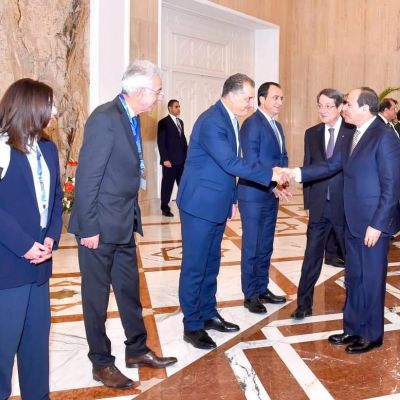
Local industrialists have claimed that the importation of rival products, high cost of electricity and imported raw materials and operating below capacity were hampering their competitiveness on local and continental markets.
The challenges were highlighted on Wednesday during the celebration of Africa Industrialization day.
The day gives an opportunity to share the achievements, experiences, challenges and prospects for the future development of the industrial sector in Rwanda.
It was held under the theme: “Positioning African Industry to supply the African Continental Free Trade Area (AfCFTA) Market”.
Constantin Rugaba, the Sales and Marketing Manager at Master Steel, a factory that manufactures construction materials, said imported rival products have led their sales to decrease.
“We produce roofing sheets, tubes, nails, steel and other basic materials needed in construction. However, we are still facing challenges of some imported rival products that are sometimes substandard and sold at cheaper prices than ours,” he said, citing an example of some tubes imported from Tanzania that are sold at cheaper in Rwanda.
“For instance dealers go to Tanzania and purchase a 40x40 tube at below Rwf7,000 while it is purchased at Rwf7,500 from our factory. If such importers purchase, say, three containers, they retail at cheaper prices and are more competitive.
This is affecting our sales performance since our prices are a bit higher. Our sales per month are worth $500,000. But for the past two months our sales decreased by $600 each month because clients prefer those imported and sold at lower prices,” he said.
Other challenges, he said, include high cost of electricity and imported materials that is expensive adding that this keeps their products’ prices higher.
“We want the government to set up affordable prices for electricity used in industries,” he said.
Telesphore Mugwiza, Director General of industry and entrepreneurship department in the Ministry of Trade and Industry, said lack of competitiveness among local manufacturers is driven by high production cost and operating below production capacity.
“There are many factors that make some imported products cheaper. Some countries have developed industries for the past many years while local industries are on construction journey.
For local industries to sell at cheaper prices, it requires to help them reduce production cost and operate at their full capacity,” he said.
The official explained that most of the local industries are still operating at 50 per cent of their required production capacity.
Other industries still have a limited market, he said adding that mobilizing Rwandans to consume more locally made products will trigger mass production and a drop in prices.
Mugwiza added that access to affordable water, electricity and other infrastructure are the factors behind producing affordable products.
“The cost of electricity for local industries is still a bit high but something is being done. For instance, in January, a new tariff was released to facilitate industries and this continues as more investments are made in electricity generation,” he said, adding that more subsidies were on the table.
“For instance, investors pay 30 per cent of the cost of land where they want to set up their factories in industrial zones and pay the rest 70 per cent in the next five years while operating,” he said
Andre Habimana, the United Nations Industrial Development Organisation (UNIDO) Country Representative, said that supporting local industries will position them to supply the African Continental Free Trade Area Market.
“We are supporting in providing technical assistance and skills to the industries. We help them to know where they can import affordable and quality technologies so as to increase production,” he said.
Since the launch of the Made in Rwanda campaign in 2015, total imports decreased by 4 per cent, from $1.849 billion in 2015 to $1.772 billion in 2017.
Rwanda’s total exports have increased by 69 per cent from $559 million in 2015 to $944 million in 2017.































